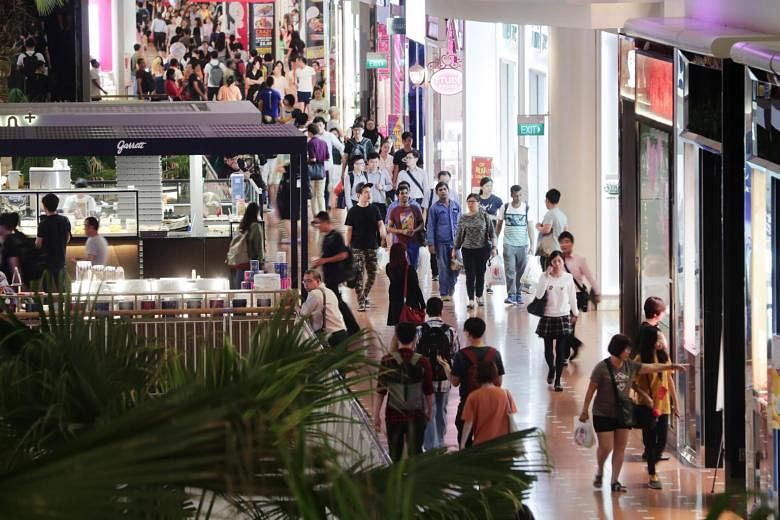SINGAPORE - Singapore's manufacturing sector again suffered the largest increase in slow payments among the five sectors in the third quarter of this year, while the services and wholesale trade sectors also suffered quarter on quarter (q-o-q).
On the other hand, the retail sector posted a q-o-q drop in slow payments, while payment performance for the construction sector was unchanged, according to a report by the Singapore Commercial Credit Bureau (SCCB) on Tuesday (Oct 1).
Overall, Singapore firms' payment performance remained weak, with prompt payments still accounting for less than half of total payment transactions in Q3, while slow payments made up more than one-third.
Prompt payment refers to when 90 per cent or more of total bills are paid within agreed payment terms, while slow payment is defined as when less than 50 per cent of total bills are paid within the agreed terms.
Prompt payments remained on a downtrend q-o-q, falling by 0.63 percentage points to 48.81 per cent in Q3 from 49.44 per cent in Q2. However, year on year (y-o-y), prompt payments improved by 0.5 percentage points from 48.31 per cent.
Slow payments inched up by 0.19 percentage points to 37.29 per cent in Q3 from 37.1 per cent in the previous quarter, but fell by 1.65 percentage points y-o-y from 38.94 per cent.
Meanwhile, partial payments was up by 0.46 percentage points q-o-q to 13.91 per cent for the quarter, and also increased by 1.17 percentage points y-o-y from 12.71 per cent.
Partial payment occurs when between 50 and 90 per cent of total bills are paid within the agreed payment terms.
The y-o-y improvement of overall payment performance may be a sign that creditors have tightened their credit limits even more, in anticipation of less-prompt payments, according to Audrey Chia, chief executive officer of D&B Singapore, which compiles the study figures by monitoring more than 1.6 million payment transactions of firms.
"Hence, we are seeing greater prudence in the extension of credit terms by companies here," Ms Chia said.
Operating under D&B, the SCCB maintains a database of local enterprises and their credit history.
In the manufacturing sector, there were more slow payments in Q3 due to payment delays by manufacturers of leather products, printing and publishing, and food products, SCCB said.
Slow payments in manufacturing increased by 1.14 percentage points q-o-q to 39.22 per cent of the sector's total payment transactions, and was also up 1.4 percentage points y-o-y from 37.82 per cent.
Manufacturers of leather products recorded the biggest surge q-o-q at 15.48 percentage points to 35.48 per cent in Q3. This was followed by manufacturers of printing and publishing, up by 4.21 percentage points to 47.51 per cent in Q3. Food product manufacturers saw a 4.08 percentage point increase from Q2 to 37.79 per cent.
As for the services sector, slow payments rose for the second straight quarter, largely due to a rise in payment delays within consumer services, legal and social services, SCCB said.
Slow payments made up 36.42 per cent of the services sector's total payment transactions in the quarter, up 0.65 percentage points q-o-q but down 0.28 percentage points from a year ago.
In the wholesale trade sector, slow payments worsened amid more delays by wholesalers of both durable and non-durable goods. Q-o-q, slow payments rose by 0.61 percentage points to 35.83 per cent. They also increased by 0.54 percentage points y-o-y.
In contrast, the retail sector posted an improvement in slow payments on both a q-o-q basis and y-o-y basis. This was mostly thanks to a better showing by retailers of general merchandise, automobiles, and food and beverage (F&B).
Slow payments stood at 34.47 per cent for retail in Q3, down 1.72 percentage points from 36.19 per cent in Q2 and sliding 9.64 percentage points y-o-y from 44.11 per cent.
Meanwhile, the construction sector's slow payments remained the same at 46.9 per cent from Q2, despite accounting for the highest proportion of slow payments across all sectors in Singapore.
Y-o-y, the construction sector saw a decrease of 0.38 percentage points in slow payments.

